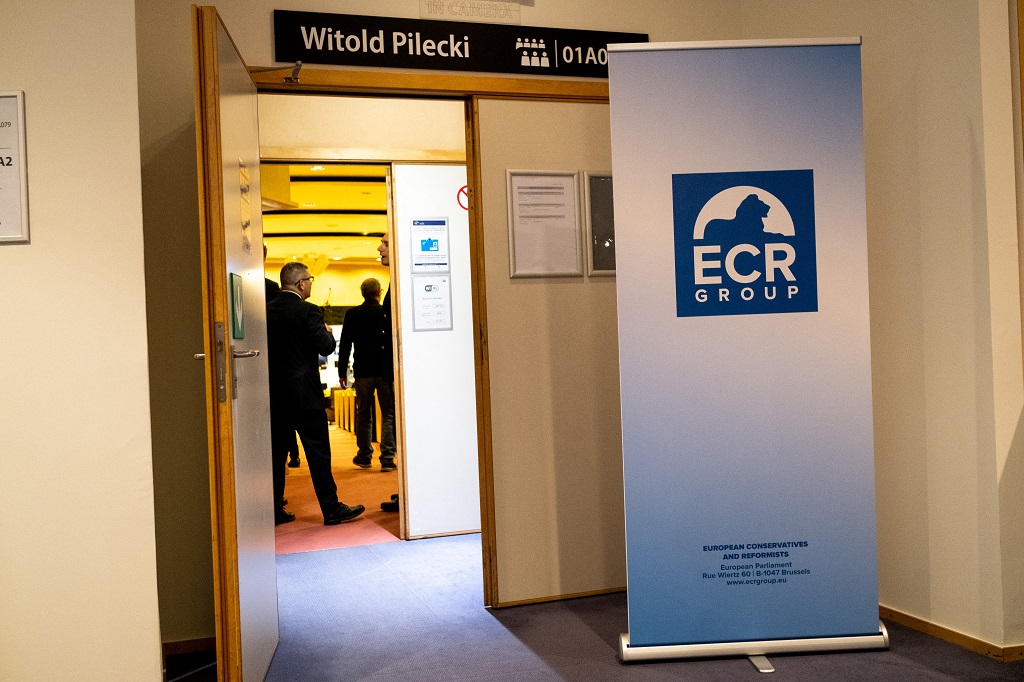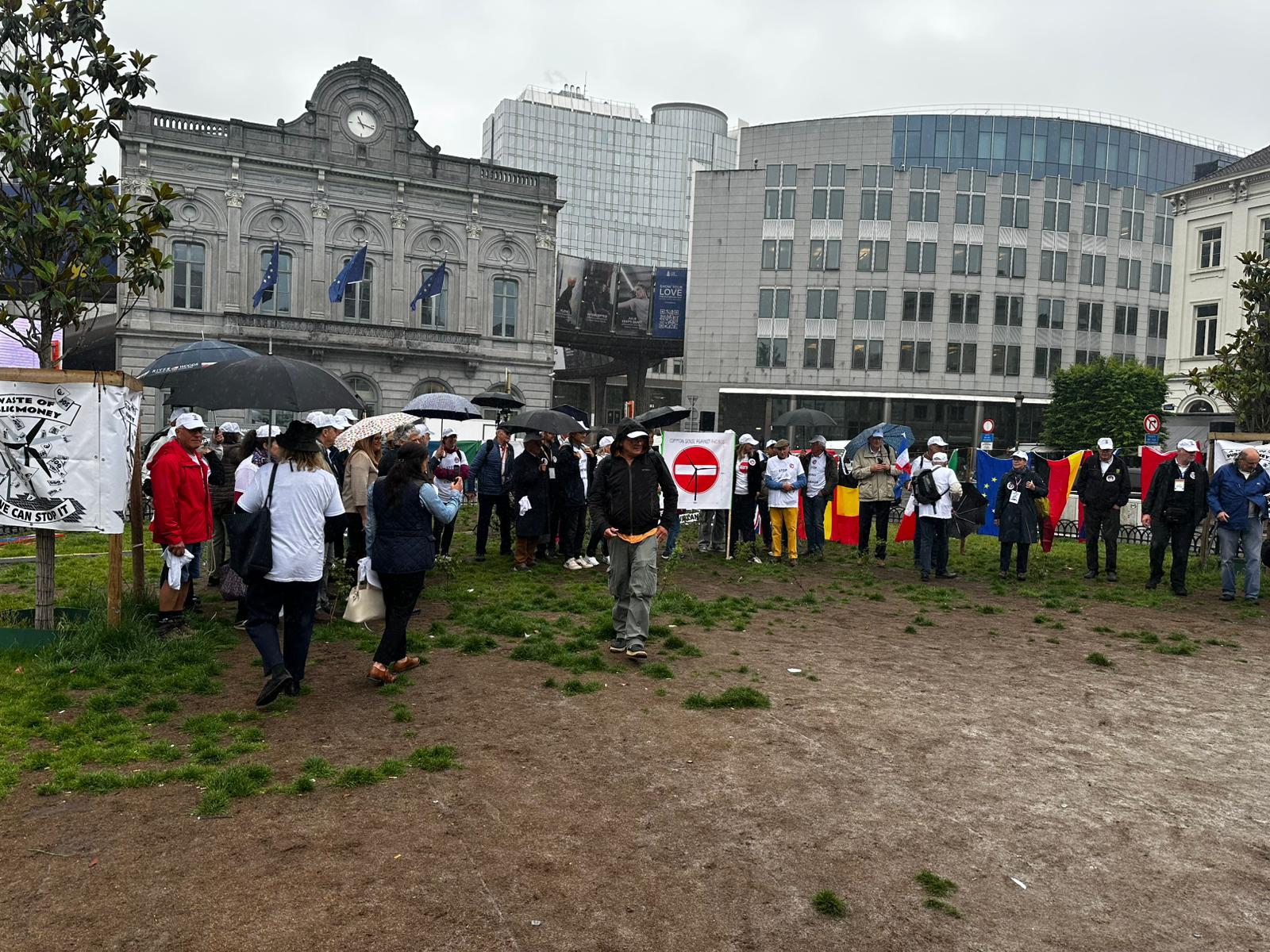The European Commission paid activists to target private companies in the courts, expanding Europe’s shadow lobbying scandal, according to German news reports.
German news outlet Die Welt examined documents that it said showed Brussels’ alleged secret funding went further than previously known.
Next to paying “green” NGO’s to influence MEPs and member states to promote a green policy agenda, it was alleged that the EC gave money to NGOs to pursue European businesses legally and sue them.
“Brussels officials and activists coordinated with each other down to the last detail,” Welt am Sonntag wrote.
“Millions of euros of taxpayers’ money flowed into this.”
One NGO, ClientEarth, received €350,000 to initiate legal action against German coal-fired power plants, with the aim of increasing the “financial and legal risk” for their operators, the paper alleged.
Christoph de Vries, Parliamentary State Secretary at the Federal Ministry of the Interior in the German Government of Chancellor Friedrich Merz, reacted strongly on June 7 on X about the report.
“It is an outrageous act when parts of the EU Commission use taxpayer money to support climate and environmental lobbyists to deliberately harm energy companies and farmers, torpedo EU projects, politically subservient parliamentarians, and influence public opinion,” de Vries wrote.
“Disciplinary consequences must be examined against those involved, and it demonstrates once again that the allocation of public funding requires greater transparency and stricter criteria. There is considerable potential for savings here for the benefit of the EU and Germany.”
A spokesperson of the EC denied the allegations to Brussels Signal, saying: “There are no secret contracts between the European Commission and NGOs.
“The Commission exercises a high degree of transparency when it comes to providing funding to NGOs. We have been working closely with the European Parliament and the European Court of Auditors to improve this transparency even further.”
It was stressed that information on recipients of European Union funding, including the names of recipients and amounts, was publicly available on the EC´s Financial Transparency System website.
The spokesperson said the body was committed to working with NGOs and that they remained “fully autonomous and free to establish their own views on all policy matters”.
“EU funding to NGOs is provided based on grant agreements, which are complemented by work programmes whose preparation falls under the responsibility of NGOs.
“To strengthen this partnership, the European Commission issued clear guidance last year to streamline how it provides funding to NGOs.
“As per the guidance, the Commission has instructed its services not to sign off on work programmes if those contain overly specific activities directed at EU institutions or their representatives.” the spokesman said,
Despite that, Brussels Signal was able to retrieve the full quote from the contract between ClientEarth and the EC, which explicitly showed that the NGO promised to pursue coal plants.
“We will continue to provide financial, strategic as well as communication support to challenge certain coal plants. Challenges include contesting water permits, IED permits, increasing political pressure against operators and heightening financial and legal risk for the coal plants ownership and operation,” ClientEarth pledged.
“We will also continue efforts to ensure that the Datteln 4 coal plant [North Rhine-Westphalia] will actually cease operating, after a court declared the underlying building plan invalid recently.”
German Christian Democrat Union (CDU) MEP Monika Hohlmeier told Welt in a reaction to its reporting: “It is regrettable that under the former Commissioners [Virginijus] Sinkevičius [environment] and [Frans] Timmermans [climate], lump-sum subsidies were given to organisations that anchored radical actions, covert political lobbying and pressure on decision-makers as goals in their work programmes.
“I was particularly shocked by the subversive plans, according to which farms up to coal-fired power plants were to be forced to give up their economic activities through lawsuits and the massive tightening of the obligation to provide evidence,” Hohlmeier said.
“It is worrying that the Commission’s inspectors did not take the dubious work programmes as an opportunity to refuse funding.”
According to Die Welt, the contracts between the EC and the NGOs were “surprisingly concrete”.
“EU officials formulate exactly what they expect from the activists in return for the funding – such as a certain number of lobby letters, messages on social media and meetings with MEPs,” it reported.
CDU politician Markus Pieper said the funding was “a clear violation of the principle of the separation of powers”.
Liberal MEP Svenja Hahn told Die Welt: “The citizens are left with the impression that the Commission is only promoting their precious opinions with taxpayers’ money.
“This massively damages trust in the European institutions.”
In April this year, the European Court of Auditors (ECA) criticised the EU for its “opaque” funding practices and “fragmented and unreliable” information.
That came to the forefront in the European Parliament after media revelations in January that, under former Commission vice president Timmermans, the EC had paid green NGOs as part of an alleged covert lobbying scheme aimed at secretly influencing MEPs, businesses and European administrations.
While huge amounts of taxpayers’ money were given to NGO’s – €4.8 billion was granted by the EC and €2.6 billion by EU member states – the ECA found in its report “there is no reliable overview of EU money paid to NGOs”.
After pressure from Conservative parties, Brussels acknowledged that NGO work programmes funded by the EU included “inappropriate” lobbying.
Conservative MEPs looking for more transparency regarding EU funding for activist NGOs said they had the door slammed in their faces by the European Commission. https://t.co/j2ZCTqsQ6T
— Brussels Signal (@brusselssignal) April 2, 2025





